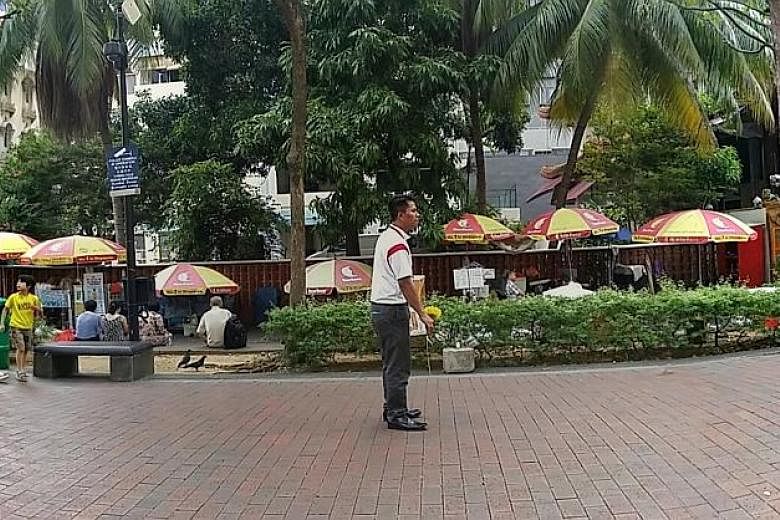Singapore is a multiracial and multi-religious society which has enjoyed many years of relative peace.
Harmonious living, however, is not guaranteed to any country. Hard work must be put in to manage ethnic differences and divergent expectations. So that we do not take goodwill and societal peace for granted, each generation needs to review and explore fresh ways to build bridges and deepen inter-religious understanding. This has to be done to enable different groups to maintain, on the one hand, the integrity of their beliefs and, on the other hand, to acknowledge the real differences between various religions and philosophies. There is also a need to widen the spheres for public contact, increase collaboration and nurture mutual respect.
In our impatient search for inter-religious peace, we may be tempted to offer quick answers and superficial responses by suppressing or ignoring what might be essential teachings of a person's faith, and, in so doing, prematurely dismiss such belief as "fundamentalist", as if to hold on to fundamental belief is anathema for a multi-religious society.
Sometimes, we unhelpfully promote certain views as "progressive", as if by using such a term with its utopian bias, long-held differences can be resolved and eradicated almost overnight.
A better response, even if this is difficult and an intellectually more rigorous exercise, is to seek to delve deeper into the core doctrines of different religious groups to find grounds for us to relate with confidence to one another, despite our differences.

A place where doctrinal differences and philosophical world views can be studied in sufficient depth is an academic set-up which will provide resources for such study. Though there are departments in our universities offering some sorts of studies on religions, it is time to establish a research centre or a full-fledged religious studies department, led and anchored by local academics with specialisations in, for example, Islamic studies, Christian faith, religious ethics, Buddhist belief, and philosophy of religion. Such a department - which should not be parked under another faculty, in other words, it should be independent of other academic disciplines - will contribute to in-depth studies of inter-religious issues and offer appropriate responses drawn from the various faiths, in an Asian context, to meet challenges faced by Asians living in a multi-religious and multiracial society. Needless to say, we can work with other academic disciplines and still learn from the experience and expertise of scholars of religions from overseas, but we do not have to follow their religious teachings slavishly with little or no reference to our own rich contextual concerns and aspirations.
An important consideration is also to invite religious scholars from the various religious communities to participate in their research projects and symposiums. The input of Singaporean religious scholars who are active in their faith communities is necessary to ensure that what is discussed and promoted are not disconnected from the real life experiences of ordinary members of the mosque, church or temple.
Separately, in our public discourse about inter-religious relations, we should avoid words which may add confusion instead of providing clarity. To illustrate, we can say that Singapore is a plural society. This is a statement of fact regarding the composition of our population. "Plural" used here is a non-threatening descriptive term spelling out what we are. However, "pluralism", when applied to a country, may connote the idea of an ideology preferred or promoted by the country. Understood that way, pluralism is normative.
In the study of religions, it usually refers to a school of thought which says that all religious faiths are the same. That suggests that there is nothing unique about the different religious groups. But we know that no right-thinking person will fail to recognise that no one can remain a Muslim, Christian or Buddhist by ignoring or discarding his core doctrines, though there may be certain religious groups which may accept pluralism as part of their tenet of beliefs.
If a religious group has fundamental core beliefs which are different from other groups' beliefs, does that mean that members of that group cannot develop meaningful relationships across religious lines? One with a pessimistic view may conclude that that may indeed be the case. However, without being a pessimist or a utopian, borrowing an idea from political philosopher John Rawls, we can always look for and expand on our overlapping consensus, to identify and nurture shared values found in our overlapping communities.
The reality is that we all hold multiple memberships in overlapping communities. I may be a Christian and so, I have membership in a church. But I am also a son of parents in a family of Taoists; a resident in a neighbourhood of friends from different faiths and philosophies; a citizen of a plural Singapore; a member of a professional association; a volunteer in a voluntary welfare organisation, and so on. The various communities, where I have membership, have values and teachings which I am proud to commit myself to. In other words, the opportunities are there for anyone with some sense of goodwill to find shared values and to expand the overlapping consensus in our communities, which we can tap on for us to visualise the kind of society we would like to have and to ensure that people of different faiths can live together and contribute to the common good.
Ours is a fragmented world. It is essential for our long-term well-being that we strengthen inter-religious and inter-racial relations and to bring these to a higher level. To do so, consider establishing a full-fledged centre for religious studies, recognise that Singapore is a plural society without ignoring or disrespecting the differences we find in various religious groups, and look for and expand on the shared values and moral vision which we can find in the overlapping consensus of our overlapping communities.
- The writer, an ethicist, is a Methodist pastor, a lecturer in a seminary and the chairman of the Methodist Welfare Services.

